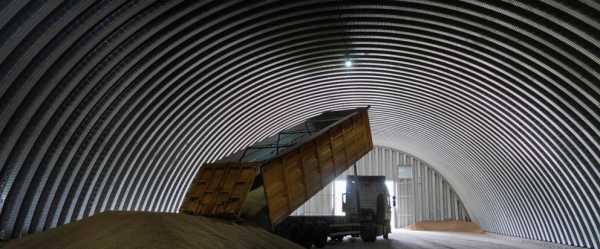
BRUSSELS — European Union agriculture ministers met Tuesday to discuss ways of moving grain vital to global food security out of Ukraine after Russia halted a deal that allowed the exports. At the same time, they want to protect prices for farmers in countries bordering the war-ravaged nation.
Germany's agriculture minister, Cem Ozdemir, warned that the ministers must seek to balance those two issues without eroding the EU's support for Ukraine in the war sparked by last year's invasion.
If cracks open up in EU unity, “the only one who is happy is Vladimir Putin,” he said.
The ministers met in Brussels for the first time since Russia pulled the plug last week on the wartime deal that allowed grain to flow from Ukraine to countries in Africa, the Middle East and Asia, where hunger is a growing threat and high food prices have pushed more people into poverty.
The deal provided guarantees that ships would not be attacked when entering and leaving Ukrainian ports, while a separate agreement facilitated the movement of Russian food and fertilizer.
Finland's agriculture minister, Sari Essayah, said Russia's ending of the grain deal is “a very serious problem, not only in the EU markets, but it would have some consequences for the food for security all over."
She said ministers "must make sure that the Ukrainian grain can reach the global markets via EU territory.”
Poland’s agriculture minister Robert Telus was set to tell the EU meeting that his country, along with Slovakia, Hungary, Romania and Bulgaria, are extending their ban on Ukrainian grain imports, but will still allow food to move through their countries to parts of the world.
Lithuania's agriculture minister, Kęstutis Navickas, suggested that export procedures for grain could be shifted from the Ukraine-Polish border to Lithuanian ports as a way of preventing grain from getting stuck in Poland and causing a supply glut that pushes down prices for local farmers.
Germany's Ozdemir appeared to support the plan, saying grain from Ukraine could be transported in sealed containers to ports in the Baltics.
“I’m sure the friends from the Baltics would be happy to help and then transport to where it’s needed in the Global South,” Ozdemir said.
Over the past several days, Russia has targeted Ukrainian critical grain export infrastructure since it vowed retribution for an attack that damaged a crucial bridge between Russia and the Moscow-annexed Crimean Peninsula. Russian officials blamed that strike on Ukrainian drone boats.
Ukraine also is seeking to continue exporting grain by sea. It sent a letter to the United Nations International Maritime Organization establishing its own temporary shipping corridor, saying it would “provide guarantees of compensation for damage.”
But Russia warned it would assume ships traversing parts of the Black Sea to be carrying weapons to Ukraine. In a seeming tit-for-tat move, Ukraine said vessels heading to Russian Black Sea ports would be considered “carrying military cargo with all the associated risks.”
Sourse: abcnews.go.com






